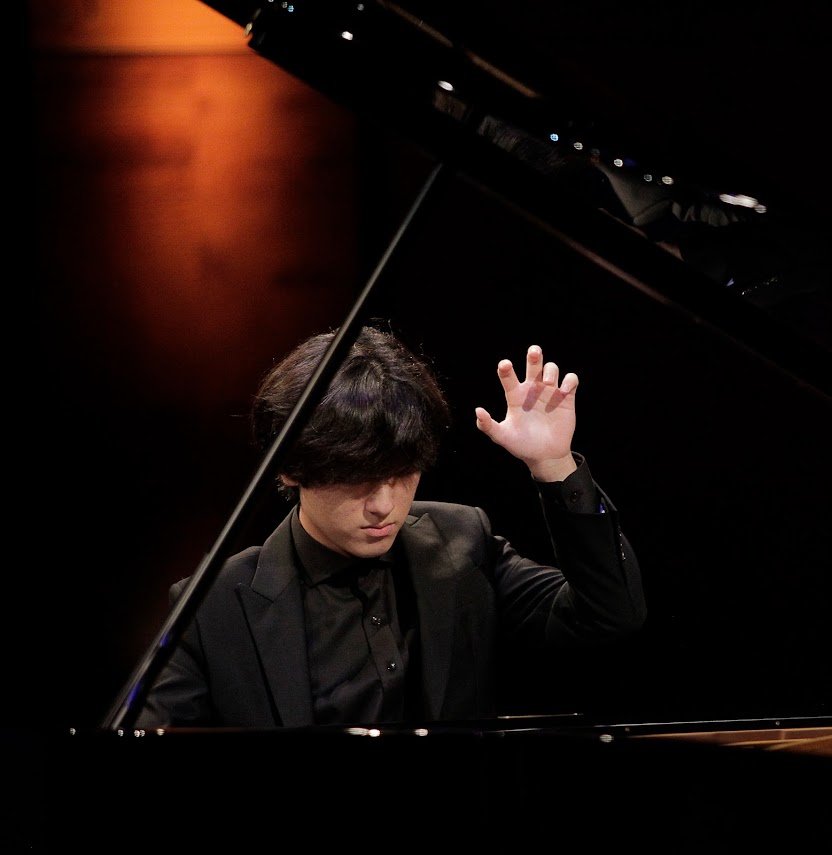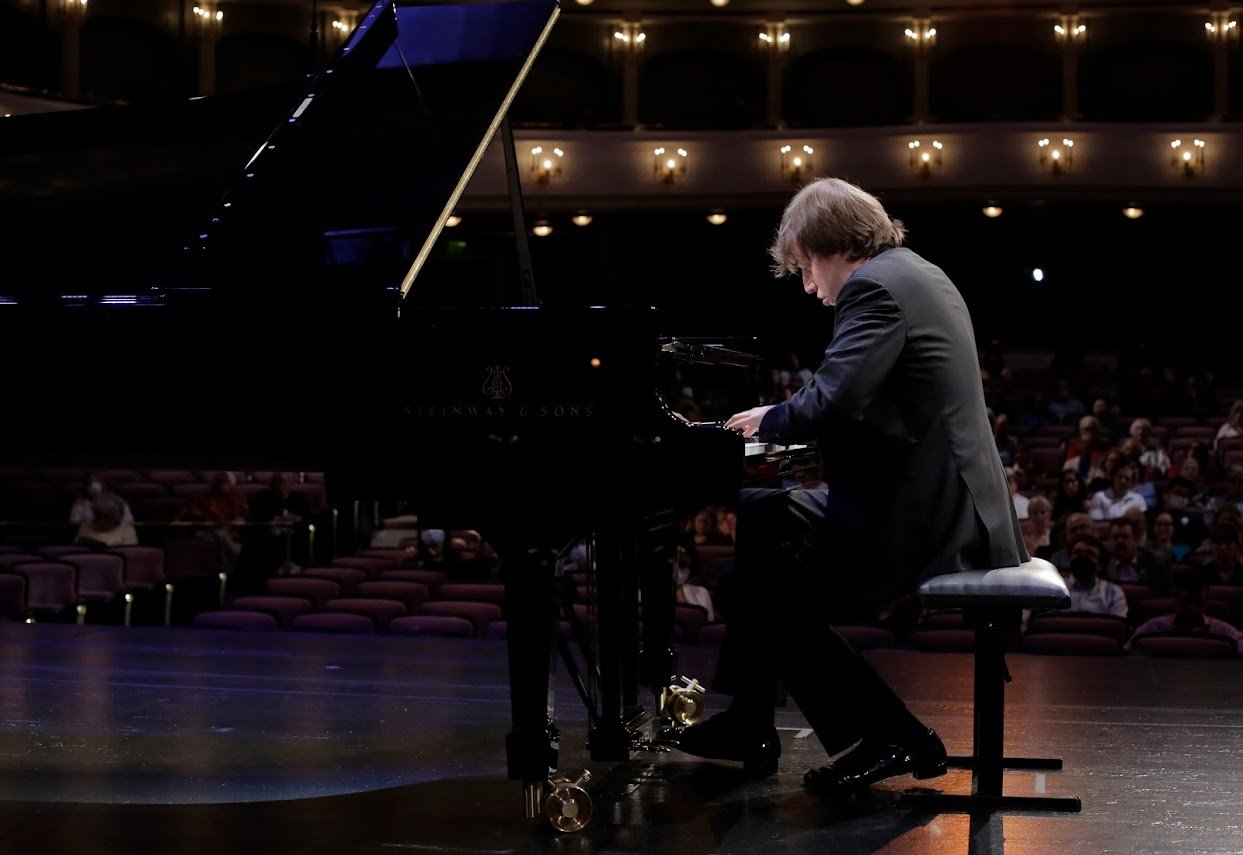Cliburn Competition: Semifinal Concert 4 (Recital), June 10, 2022
—Wayne Lee Gay
Franz Liszt has been the go-to performer for the 2022 Cliburn Competition: selections from his massive output have turned up in most sessions, ranging from the monumental Sonata in B minor to the playful Sixth Hungarian Rhapsody. Friday afternoon, Korean pianist Yunchan Lim, 18, upped the ante by devoting his entire semifinal recital to a complete performance of Liszt's Twelve Transcendental Etudes, a work that in many ways epitomizes nineteenth-century romanticism at the piano.
Any complete performance of this cycle is an event; that the challenge was taken on by Lim at the age of eighteen is a moment worth pondering. Lim clearly intended to play up the dramatic and emotional possibilities. At Lim's request, master of ceremonies Artina McCain instructed the audience to withhold applause until the conclusion of the set--obviously to emphasize his unified vision of the cycle.
Memorable moments abounded in this encyclopedia of pianistic effects, from the impossible leaps of No. 6 ("Vision") to the thunderous chords of No. 7 ("Eroica") to the whirling depiction of snow flurries in No. 12 ("The Snow Plow"). But it wasn't all bombast and fireworks, as represented by the serene depiction of the countryside viewed from a train in No. 2, ("Paysage"), or the staccato suggestion of a guitar in No. 11 ("Night Sounds"). Balance was occasionally a minor issue, as in No. 4 ("Mazeppa"), where accompaniment nearly drowned melody. But Liszt was overwhelmingly well served--and Lim deserved the roaring ovation he received.
If there were a few tiny issues in Lim's Liszt, there were none to be found in the virtually perfect performance by Ilya Shmukler of major works from Brahms and Prokofiev.
In Brahms' Variations and Fugue on a Theme by Handel, the 27-year-old Russian performed miracle after miracle of timbre and volume, moving with steady, unbroken progress through this emotional and technical pilgrimage. After the lively vivo of the first variation, Shmukler ranged through an impressive range of soft colors in one direction to majesty and exuberance in the other, all the while carefully attending to the complex interweaving of rhythmic patterns and contrapuntal voices.
We've already heard several versions of Prokofiev's Eighth Sonata in the competition, but Shmukler's was the first in which the logical structure and momentum was clearly evident. Shmukler neatly paced the rising tensions of the opening Andante as it grew to an agitated Allegro. And, as in the Brahms, he displayed a fascinating ability to create atmosphere in the central Andante sognado (literally, "dreamlike"). Prokofiev lingers ambivalently in the final noisy cadence, and Shmukler maintained the tension handsomely. In his second try at the Cliburn prize, Shmukler looks like a good possibility to advance.

